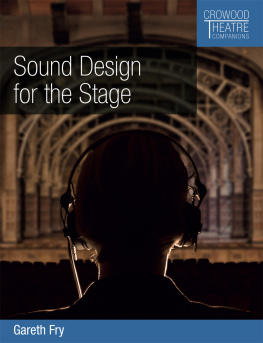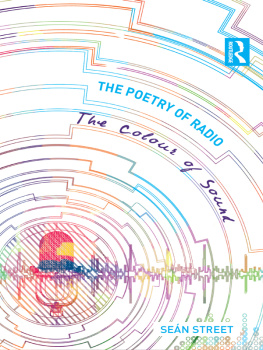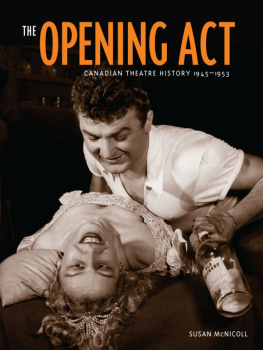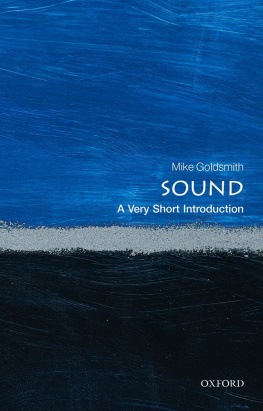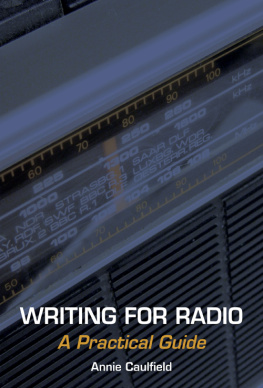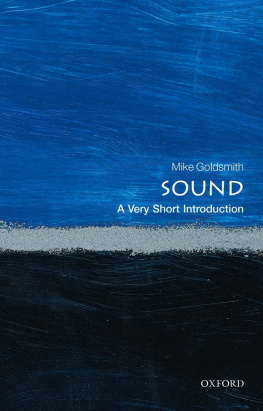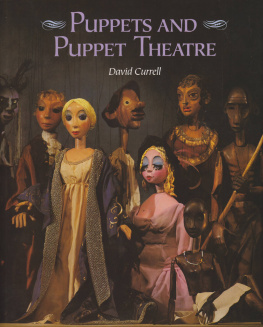SOUND THEATRE

First published in 2011 by Oberon Books Ltd.
This electronic edition first published in 2012
Oberon Books Ltd.
521 Caledonian Road, London N7 9RH
Tel: +44 (0) 20 7607 3637 / Fax: +44 (0) 20 7607 3629
e-mail: info@oberonbooks.com
www.oberonbooks.com
Copyright David Pownall, 2010
David Pownall is hereby identified as author of this work in accordance with section 77 of the Copyright, Designs and Patents Act 1988. The author has asserted his moral rights.
You may not copy, store, distribute, transmit, reproduce or otherwise make available this publication (or any part of it) in any form, or binding or by any means (print, electronic, digital, optical, mechanical, photocopying, recording or otherwise), without the prior written permission of the publisher. Any person who does any unauthorized act in relation to this publication may be liable to criminal prosecution and civil claims for damages.
A catalogue record for this book is available from the British Library.
PB ISBN: 978-1-84943-102-6
EPUB ISBN: 978-1-84943-328-0
Visit www.oberonbooks.com to read more about all our books and to buy them. You will also find features, author interviews and news of any author events, and you can sign up for e-newsletters so that youre always first to hear about our new releases.
Chapter I
I T S THE FIRST reading of the radio play generally agreed by everyone concerned, except the author, to be a matter of limited importance. But for the maker of the piece it is a big moment the first time hes heard the play run together outside his own head. The studio-wise actors will be holding back, not commiting themselves to a full performance before theyve heard what their colleagues are going to come up with. If theres a starry name in the cast there may be some suggestive incoherence while the ego gets into the shadow of the part. The director is concentrating on whether he has cast the voices accurately. Is there enough differentiation? Do any of them sound like each other? At the back of his mind is an anonymous pair of ears prone to confusion.
The director has read the play many times, probably more than the author. He knows that the model of interpretation in his mind will only work if the mix of voices is right. No one picks up on the authors anxiety. This can be so acute that some playwrights dont attend recordings, preferring to trust to luck. This is not a good idea. Always, always be there, even if you sit in the control room for three days without saying anything. I only ever missed one recording of a play of mine, and that was because I was on the other side of the world. Upon my return I rang the director and asked how everything had gone. What I was told sent a chill down my spine. The actors had had a wonderful time with the play. And how.
In terms of tension, at the recording of a radio play the author starts in at the level of a stage dress rehearsal. Immediately after the first reading what was whole is broken up into scenes and sections and probably not recorded in order. You know that after this run-through there will be no strung-together homogeneity in the experience until the play is broadcast. The interpretation in studio can tilt and slide to one side maybe not the side you favour. If it does, what are you going to do about it? Never let a critical thought go unsaid, but be sure you can back it up. So, put up or shut up.
* * *
Radio theatre depends on getting inside the head and staying there. But the body and its personal atmospheres are not forgotten. The sound of breathing, the colours of accents, vocal delivery, the quirks of emphasis, these run parallel in importance to words themselves. To a skilled radio actor, the microphone is a transplant bolted into the bones of his head.
Some of the best directors of radio theatre were stage actors. They tend to focus on performance more than soundscape. Whatever will be achieved in realising a play will come from the state of the actor in studio during the very brief time available to realise the play two days for an hour-long recording. This isnt much time for an actor to get his teeth into a part, so technique is important. It is possible that the actor will have only read the play properly on the way to the studio. At the first reading which is the supreme moment for the playwright any superficiality of approach will show and the pressure will be on.
An actor with a voice that is recognised as a beautiful instrument, may surf through the reading, riding on reputation. The director and the playwright will clock the fact. How, in the time available, can this be remedied? In the evening an actor may be working at a theatre, doing a big part. Hes saving himself, eking out his energy. Thats easier to deal with. The microphone picks up energy levels. The right kind of pressure has to be put on the actor without him knowing it.
* * *
The studio manager on the control panel is very experienced. Everything she hears affects her, which means she has ideas and opinions that cross into the territory of the director. What the actors say and how they say it is as much sound to the studio manager as the effects. She considers her job to be recording the very best sound available. She cannot divide her world into proper spheres of responsibility and leave the director to his. When an actor is getting it wrong it is as painful to her as a fault on the equipment. She also has a technicians ulterior disrespect for the whole idea of directing. During the last few hours of the days work resentment surfaces and erupts. She has to be slapped down. Her sensitivity in keeping control of what is being recorded suffers. The director criticises her, refusing to avoid the confrontation. Eventually, after error upon error, he asks her to go out into the corridor and they have a row that makes a nonsense of the studio soundproofing. They return to the control room and resume recording. Within a quarter of an hour the whole episode is history.
* * *
The third scene is not going well. Were down to the inflexion of one line. The actor cant get it right. The director has explained what he wants several times but hasnt got through. The line has already been recorded several times and scrapped. When played back to him, the actor can hear whats wrong but the way to do it properly escapes him. Somehow he cant get his mind round the intonation thats needed. To hit that right note with perfect judgement can be difficult, causing embarrassment to the most experienced.
Were well behind on the recording schedule. That will have to be made up somehow. Because of the severity of the budget, overtime is out of the question.
Now the actor is getting tired of being put on the spot. Everyone is aware of a crisis looming the control room, the green room and the studio itself. There is an atmosphere.
Atmospheres are of critical importance to a radio play. The playwright specifies what is needed sitting-room atmos, pub atmos, underwater atmos, country lane atmos, pigsty, pillar-box, perambulator, palace atmos, but never a tension atmos outside what the work requires. It will always be picked up. Both the human and technical equipment is hyper-sensitive.
As a problem the one line seems diminutive, a few words. Why not move on, gloss over it? But Martin, the director is a terrier. He never gives up because he knows it will flaw the piece. What he wont do is speak the line himself as he wants it done even though he was once an actor and has a wealth of experience. If a performance is tilted by heavy advice on interpretation, the emphasis of the part will shift and the whole sound impression of a human character will become uneasy and ill-defined.


